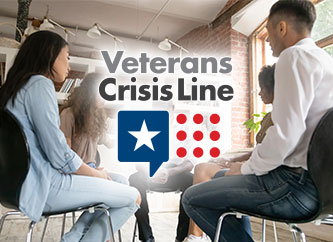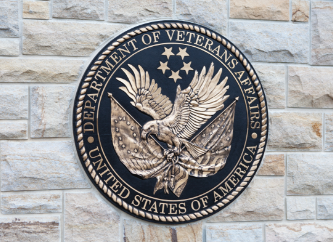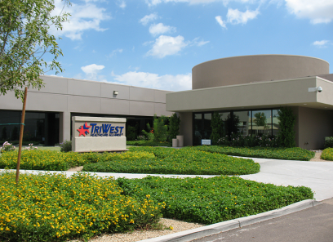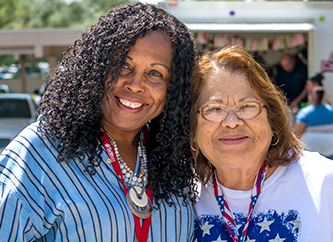Provider Pulse – April 2021
 VA Transition from PC3 to CCN Continues
VA Transition from PC3 to CCN Continues
The Department of Veterans Affairs (VA) continues its transition from Patient-Centered Community Care (PC3) to the Community Care Network (CCN). CCN is comprised of six regional networks and is being deployed in a phased approach. Once fully implemented, CCN will be the preferred national network VA uses to purchase care for Veterans in their community.
Here are some frequently asked questions during this transition period.
How will CCN differ from PC3?
VA has specified several differences between CCN and PC3. Here are some highlights of the changes:
- VA may secure appointments directly with providers that are part of the CCN network.
- Medical documentation will be submitted directly to VA.
- Providers will need to identify a preferred means of accepting information regarding patients. VA promotes and prefers electronic Form 278 transactions.
- CCN offers expanded services including dental, pharmacy, durable medical equipment (DME), dialysis, skilled and unskilled home health, urgent and emergent care, telehealth, immunizations, and comprehensive and integrative health care.
I am currently seeing Veterans under PC3; do I need to sign a contract for CCN?
Yes. VA requires all providers to be contracted and in-network to continue receiving referrals for Veterans under CCN.
How do I join the network to ensure I continue to see my Veteran patients?
You must be fully contracted, credentialed, and in-network with TriWest Healthcare Alliance (TriWest) to participate in CCN and continue receiving referrals for Veterans. If you have not signed a CCN contract to continue to care for Veterans, please contact TriWest at 866-286-4174.
What CCN regions are still in transition from PC3 to CCN?
There are three main areas affected by the phased approach to CCN: CCN Regions 4, 5 and 6.
- Region 4 consists of Arizona, California, Colorado, Hawaii, Idaho, Montana, Nevada, New Mexico, Oregon, Texas, Utah, Washington and Wyoming. PC3 ended in CCN Region 4 on March 31, 2021. Effective April 1, 2021, all new authorizations for Veteran care in these states must be under CCN.
- Region 5 consists of Alaska. Care through PC3 in Alaska is currently scheduled to end no later than September 30, 2021, as CCN phases in throughout the state. Effective April 1, 2021, CCN launched in Kodiak, Alaska, only.
- Region 6 consists of America Samoa, Guam and the Northern Mariana Islands. Care through PC3 continues in CCN Region 6 at this time and is currently scheduled to end by September 30, 2021.
Outside of Region 4, what if I have an existing PC3 referral from VA?
Providers with existing PC3 referrals can complete the associated episode of care but any extensions of the episode of care must be done as a CCN network provider. Once a region transitions to CCN, only CCN contracted providers may send a Request for Service to VA to obtain a new approved referral/authorization under CCN.
Where do I submit my PC3 and CCN claims?
Providers should refer to the authorization letter received for each episode of care for instructions on where to submit a claim. For questions about claims submission, contact TriWest at 877-CCN-TRIW (226-8749).
 PGBA Claims Transition Underway in Kodiak, Alaska
PGBA Claims Transition Underway in Kodiak, Alaska
TriWest recently selected PGBA as its new CCN claims processor. Effective April 1, PGBA began processing VA CCN claims for Kodiak, Alaska, providers only. Depending on where other providers are located and how care is delivered (PC3 or CCN), the claims submission instructions will vary for a period of time.
On June 9, PGBA will begin accepting and processing CCN claims for Region 4. The remainder of Alaska will transition to PGBA on June 15.
Providers can begin the electronic claims enrollment process and applications can be submitted, but won’t be processed by PGBA until late May. Please note that there will be no changes for dental or pharmacy claims.
TriWest encourages you to register for the new PGBA Claims Training Webinar in preparation for the upcoming transition to PGBA. You’ll learn detailed information about PGBA, how to submit claims, the timeline for each region’s transition to PGBA, claims requirements and the updated resources and contact information to help you through the transition.
Just log in to your Availity account, go to the TriWest Payer Space, enter the TriWest Learning Center, click on Sessions and register for the PGBA webinar.
 Are You a Non-Physician Provider? Follow these VA Billing Guidelines
Are You a Non-Physician Provider? Follow these VA Billing Guidelines
VA CCN has specific requirements on the types of providers that can be credentialed and file claims.
- CCN does not pay for services from providers who are not independently licensed or who are still students.
- CCN does not pay for services rendered by non-credentialed providers.
- CCN does not pay for care is that is considered managed by a VA Medical Center (VAMC).
For example, an audiologist can be credentialed and paid for a hearing aids appointment. However, the services performed by an audiology technician to fit the hearing aids are not allowable.
Another example is a licensed master social worker (LMSW) must be under supervision of an independently licensed provider. TriWest cannot credential this category of provider into its network and cannot pay for services rendered as part of CCN. This CCN policy is in alignment with Medicare guidelines.
Follow Medicare rules
If your organization has additional staff that helps provide services to Veterans but are not independently licensed, the care must be appointed to, and billed with, the supervising clinician’s NPI. According to Medicare, the following rules apply:
- The billing physician must have seen the patient and established a plan of care.
- A supervising physician must be in the office and available to assist at the time the "incident to" service is performed.
- The “incident to” service is always billed under the billing physician's name.
To ensure that all care is appropriately appointed, CCN excludes provider categories when the associated billable services are considered included in the cost of a test, a device or other care provided by a supervising clinician, or which are performed by VAMC personnel. Some examples include:
- Behavior Technician (Taxonomy code 106S00000X)
- Technician/Technologist, Optician (Taxonomy code 156FX1800X)
- Health Educator (Taxonomy code 174H00000X)
- Occupational Therapy Assistant (Taxonomy code 224Z00000X)
- Orthotic Fitter (Taxonomy code 225000000X)
Interested in becoming a VA community provider? Refer to this helpful fact sheet.
 Billing a Veteran for Authorized CCN Care is Not Allowed
Billing a Veteran for Authorized CCN Care is Not Allowed
Reminder: Providers who participate in CCN are not allowed to charge Veterans for any services that are authorized under CCN. Providers may not impose additional charges to TriWest or the Veteran for covered services, such as co-pays, cost shares, or deductibles.
If VA needs to collect a copay, cost-share, or deductible, VA will bill the Veteran directly.
Additionally, providers may never charge a Veteran for missing a scheduled appointment.
 Provider Handbook Updates
Provider Handbook Updates
The following language will be inserted on Page 10 of the CCN Provider Handbook, just before the Drive-Time and Appointing for Veterans section.
Please note: VA’s statutory scheme for employment of physicians is not constrained by normal state statutes, and Joint Commission guidance does not prohibit VA physicians from ordering services where they are not licensed by the state.
The requirement that an ordering physician be licensed in within the state does not apply to a VA doctor who submits the order in the course of their duties for VA. The requirement for appointing a physician to a position at the VA are codified at 38 U.S.C. § 7402(b)(1), which does not require the physician to be licensed in the state where they practice on behalf of the VA. The statutes allow VA to employ a provider in any VA medical center (in any state) provided he or she has a license to practice in a state and has not had their license revoked in any other state. Joint Commission guidance requires a valid state license “as required by law,” but since federal law exempts VA providers from requiring a license in the same state where they practice, there is no conflict with the Joint Commission in these cases.
There are no changes to the PC3 Provider Handbook.













